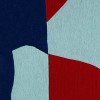Diamond is a scientist’s best friend
Counteracting systemic inequality in open access publishing
DOI:
https://doi.org/10.51751/dujal18802Keywords:
applied linguistics, open science, diamond open access, platinum open access, systemic inequality, scientific publishing, commercial publishigAbstract
The field of applied linguistics is increasingly adopting open science practices. As open access publication gains traction, ethical issues emerge that need to be addressed by the field. This viewpoint paper addresses the concern that open science is not equally open for everyone. This paper describes how open access publication is increasingly being commercialized and explains how open access publication coincides with systemic inequality. We offer the following viewpoints for the field to consider:
- We are morally obligated to make our research output accessible.
- Hybrid, Gold, and Green open access publishing lead to systemic inequality in open access publishing, benefiting commercial publishers and those working in research-intensive universities and rich countries.
- Diamond open access publication removes the systemic inequalities; hence, Diamond open access should be prioritized over Hybrid, Gold, and Green open access publication models.
- We should move away from publish-and-read agreements and Green open access publishing, because they prevent system change.
- Through our choices in our work as researchers, editors, reviewers, authors and teachers, we can contribute to the transition towards truly equitable open access publishing practices.
- Senior researchers are in the position and have the moral obligation to be drivers of these changes.
Downloads
References
Alferink, I. (2022). Using OASIS summaries: Reconciling direct access to research findings with a need for information brokering. open scholarship in applied linguistics symposium. Presentation at: Open Scholarship in Applied Linguistics Symposium.
Al-Hoorie, A., & Hiver, P. (2023). The postprint pledge – toward a culture of researcher-driven initiatives: A commentary on “(why) are open research practices the future for the study of language learning?”. Language Learning, n/a10.1111/lang.12577
Bolibaugh, C., Vanek, N., & Marsden, E. J. (2021). Towards a credibility revolution in bilingualism research: Open data and materials as stepping stones to more reproducible and replicable research. Bilingualism: Language and Cognition, 24(5), 801-806.
Butler, D. (2003). Scientific publishing: Who will pay for open access? Nature, 425(6958), 554-556.
Butler, L. A., Matthias, L., Simard, M. A., & Haustein, S. (2022). The Oligopoly’s Shift to Open Access Publishing: How For-Profit Publishers Benefit from Gold and Hybrid Article Processing Charges. In N. Robinson-Garcia, D. Torres-Salinas, & W. Arroyo-Machado (Eds.), 26th International Conference on Science and Technology Indicators, STI 2022 (sti22112). https://doi.org/10.5281/zenodo.6951572
Chiware, E. R. T., & Skelly, L. (2023). Overcoming challenges to open research practices – A perspective from the global south: A commentary on “(why) are open research practices the future for the study of language learning?”. Language Learning, n/a10.1111/lang.12576
Chiware, E. R. T., & Skelly, L. (2022). Open science in africa: What policymakers should consider. Frontiers in Research Metrics and Analytics, 7, 950139.
Chong, S. W. (2020). The role of research synthesis in facilitating research–pedagogy dialogue. ELT Journal, 74(4), 484-487.
Fair Open Access Alliance: https://www.fairopenaccess.org/
Gurzynski-Weiss, L., & IATBLT. (2020). The TBLT language learning task bank.
Hide, B. (2008). How much does it cost, and who pays? the global costs of scholarly communication and the UK contribution. Serials, 21(3).
In'nami, Y., Mizumoto, A., Plonsky, L., & Koizumi, R. (2022). Promoting computationally reproducible research in applied linguistics: Recommended practices and considerations. Research Methods in Applied Linguistics, 1(3), 100030.
Kowaltowski, A. J., Naslavsky, M., & Zatz, M. (2022). Open access: Brazilian scientists denied waivers and discounts [carta]. Nature, 603, 793.
Krawczyk, F., & Kulczycki, E. (2021). How is open access accused of being predatory? the impact of beall's lists of predatory journals on academic publishing. The Journal of Academic Librarianship, 47(2), 102271. 10.1016/j.acalib.2020.102271
Liu, M. (2023). Whose open science are we talking about? from open science in psychology to open science in applied linguistics. Language Teaching, 1-8. 10.1017/S0261444823000307
Liu, M., Chong, S. W., Marsden, E., McManus, K., Morgan-Short, K., Al-Hoorie, A. H., Plonsky, L., Bolibaugh, C., Hiver, Ph., Winke, P., Huensch, A. & Hui, B. (2023). Open scholarship in applied linguistics: What, why, and how. Language Teaching, 56(3), 432–437. doi:10.1017/S0261444822000349
Marsden, E., Alferink, I., Andringa, S., Bolibaugh, C., Collins, L., Jackson, C., Kasprowicz, R., O’Reilly, D., & Plonsky, L. (2018). Open accessible summaries in language studies (OASIS)[database]. https://Www.Oasis-Database.Org
Marsden, E., & Morgan‐Short, K. (2023). (Why) are open research practices the future for the study of language learning? Language Learning, 73(2), 344–387.
Marsden, E., & Plonsky, L. (2018). Data, open science, and methodological reform in second language acquisition research. In A. Gudmestad, & A. Edmonds (Eds.), Critical reflections on data in second language acquisition (pp. 219-228). John Benjamins Philadelphia, PA.
McManus, K. (2021). Replication and open science in applied linguistics research.
Nejadghanbar, H., Hu, G., & Jahangiri Babadi, M. (2023). Publishing in predatory language and linguistics journals: Authors’ experiences and motivations. Language Teaching, 56(3), 297-312. 10.1017/S0261444822000490
Pinowar, H., Priem, J., & Orr, R. (2019). The future of OA: A large-scale analysis projecting open access publication and readership. BioRxiv, 795310.
Plonsky, L. (in press). Open science in applied linguistics. John Benjamins. Benjamins.
Porte, G. (Ed.). (2012). Replication research in applied linguistics. Cambridge University Press.
Van Noorden, R. (2013). The true cost of science publishing. Nature, 495(7442), 426-429.
Van Noorden, R. (2020). Nature journals announce first open-access agreement. Nature, Oct 20. doi: 10.1038/d41586-020-02959-1.
Wilkinson, M. D., Dumontier, M., Aalbersberg, I. J., Appleton, G., Axton, M., Baak, A., Blomberg, N., Boiten, J-W., Bonino da Silva Santos, L., Bourne, Ph., Bouwman, J., Brookes, A.J., Clark, T., Crosas, M., Dillo, I., Dumon, O., Edmunds, S., Evelo, C., Finkers, R., ... & Mons, B. (2016). The FAIR Guiding Principles for scientific data management and stewardship. Scientific data, 3(1), 1-9.

Published
Issue
Section
License
Copyright (c) 2024 Sible Andringa; Maria Mos, Catherine van Beuningen, Paz González, Jos Hornikx, Rasmus Steinkrauss

This work is licensed under a Creative Commons Attribution 4.0 International License.
